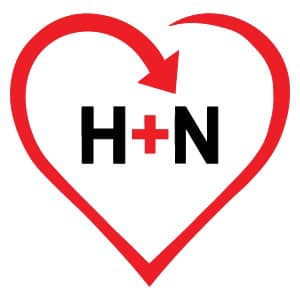High blood pressure and low blood pressure is experienced by people every day. Your first step is learn your blood pressure level. Optimal blood pressure is considered less than 120 systolic pressure and 80 diastolic pressure. While those with high blood pressure are encouraged to eat healthy, exercise and visit their doctor regularly, those with low blood pressure may not even know they are experiencing it.
Symptoms of Low Blood Pressure
Below is a list of symptoms that one may experience when they have a low blood pressure readings.
- Dehydration
- Lightheadedness
- Dizziness
- Fainting
- Unusual thirst
- Depression
- Fatigue
- Shallow breathing
- Rapid breathing
- Pale skin
- Clammy skin
- Cold skin
- Blurred vision
- Nausea
- Lack of concentration
Common Causes of Low Blood Pressure
- The first 24 weeks of pregnancy
- Prolonged bed rest
- Side effects from prescription medication
- Loss of blood volume due to dehydration, major trauma and internal bleeding
- Abnormally low heart rate
- Heart failure
- Heart attack
- Issues with heart valves
- Hypothyroidism
- Adrenal insufficiency
- Parathyroid
- Low blood sugar
- Diabetes
- Septic shock
- Allergic reaction such as anaphylaxis
- Neurally meditated hypotension
- Anemia
- Lack of folic acid
- Lack of B-12 vitamin
Severely Low Blood Pressure
If you are experiencing severe low blood pressure on a regular basis, it may be due to underlying causes. The most common underlying may lead to life threatening shock due to lack of oxygen and nutrients in the brain and other vital organs. Or, it could be an indication of neurological, endocrine and heart disorders.
Sudden Decline in Blood Pressure
There may be times when you experience a sudden decline in blood pressure. A single, lower-than-normal reading should not worry you unless you are experiencing severe symptoms listed above. However, a sudden drop in blood pressure can cause dizziness and fainting. A sudden, rapid drop in blood pressure can also indicate an underlying problem.
When to Visit the Doctor for Blood Pressure Issues
You will want to consult with your doctor at the first sign of symptoms. Your doctor will give you an exam and run tests to determine the cause of the low blood pressure. It is wise to keep a notebook dedicated to your health. Record notes of your symptoms and what activities you were doing before and during the time you experienced symptoms. This information is essential to help your doctor diagnose you properly.
Consider Blood Pressure Supplements
Discuss your health, symptoms and normal blood pressure levels with your doctor in depth. Inquire if supplements are needed to help you maintain healthy blood pressure levels. A popular option for people experiencing high blood pressure is a natural supplement called PD120 which is known to help maintain healthy blood pressure, and improve strength, energy, libido and motivation with no negative side effects.
Don’t Panic
There may be several times throughout your life that you may feel dizzy or lightheaded. This doesn’t mean you have low blood pressure. It could be a variety of reasons, dehydration is the most common. Although your dizziness or other symptoms may be brief and disappear, it is still wise to take note of the situation when you experienced the symptoms and see a doctor for assurance that your health is good.
Healthy Lifestyle to Maintain Healthy Blood Pressure
Whether you have low or high blood pressure you will want to live healthy. Adjusting to a healthy diet filled with fresh fruits, vegetables, legumes and poultry is encouraged. Drinking plenty of water on a daily basis will help your body run at its best level. Remove and avoid processed foods and junk food that is filled with sodium and cholesterol. It may not have a direct link with low blood pressure, but it is wise to keep your body as healthy as possible.
Exercise ad Help Stabilize Blood Pressure
When you have low blood pressure you may experience a variety of symptoms including dizziness. Exercise may not be at the top of your list, but with your doctor’s permission you can do low impact exercise that is beneficial to your health. You can do yoga while sitting in a chair or Tai Chi, which is a slow passed standing martial art known for its health benefits.
Daily Life with Low Blood Pressure Symptoms
If you have long-term low blood pressure levels and have to live with the symptoms, it can interrupt your daily life. Coping with the symptoms while you follow your doctor’s recommendations to stabilize your blood pressure will make your day-to-day a little easier.
Dehydration and severe thirst are common symptoms, make sure you are drinking plenty of water on a daily basis. When you feel dizzy, sit down and rest, avoid driving or handling heavy machinery. If you feel sad or depressed, try journaling your thoughts and fears to help you cope. If nausea is present, eat bland foods that your stomach can easily digest. Feeling cold is a common complaint among those who suffer from low blood pressure, carry a sweater with you at all times to get you through cold spells.
Always consult with your doctor at the first sign of symptoms for proper diagnosis. There are times you may think the symptoms are from low blood pressure, but it could be a different ailment. Follow your doctor’s instructions at all times and discuss natural supplements that could be beneficial to your condition.

Leave a comment
This site is protected by hCaptcha and the hCaptcha Privacy Policy and Terms of Service apply.